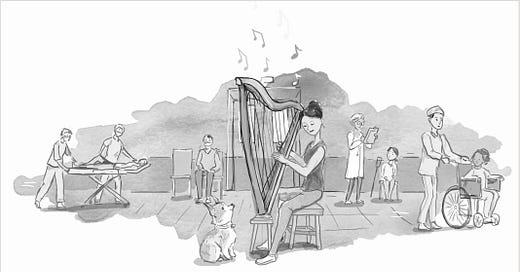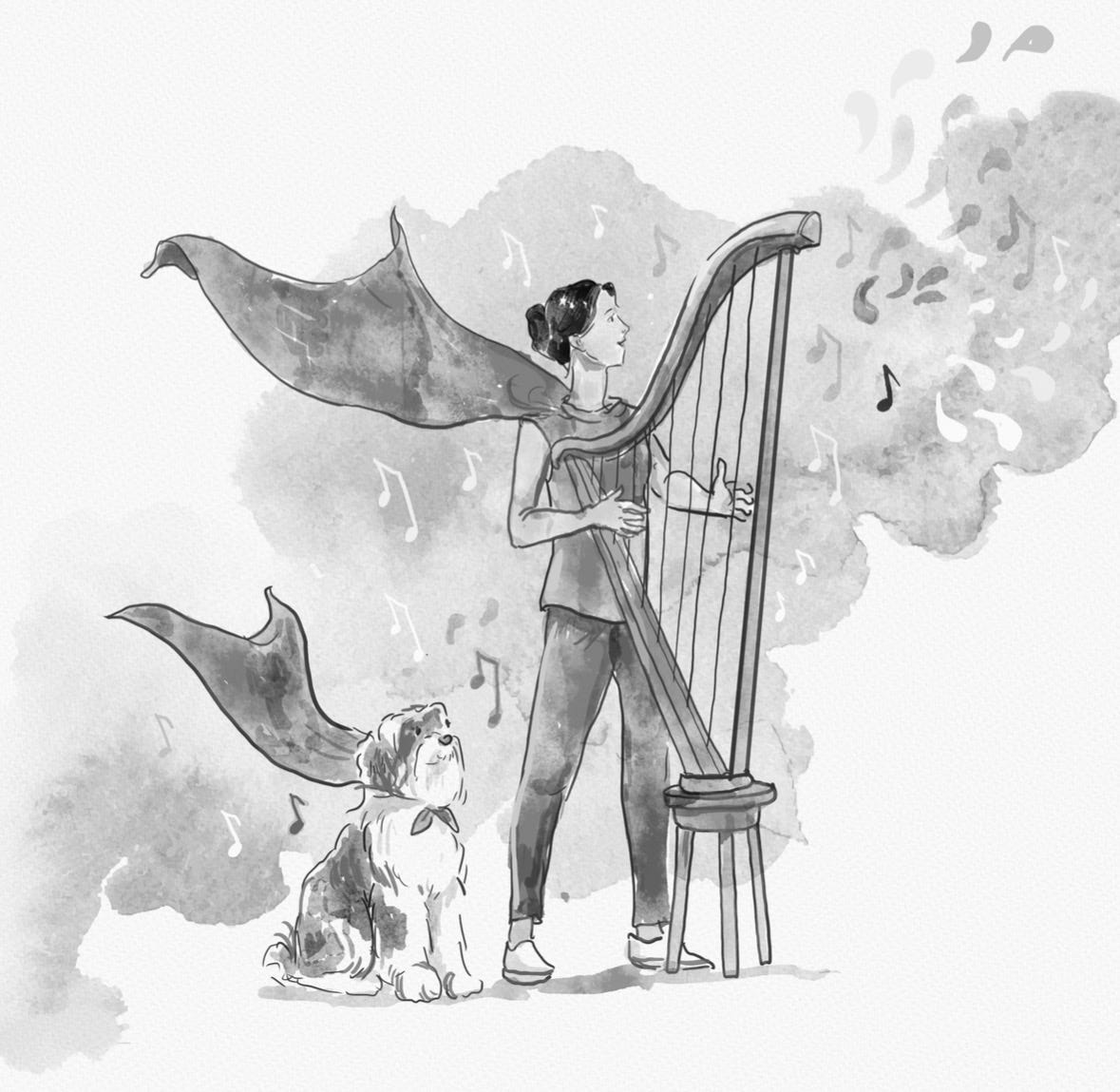What's a Certified Therapeutic Musician and Why Does it Matter?
Therapeutic music is not about performance or applause. It is more about presence. It is about meeting people where they are—physically, emotionally, and spiritually—through intentional, live music. A trained therapeutic musician doesn’t simply play to someone; they play for and with them, attuning each note to the shifting rhythms of pain, anxiety, or rest.
This is what sets a Certified Therapeutic Musician (CTM) apart from a well-meaning volunteer with an instrument. A CTM is trained to adapt tempo, tone, and resonance in real-time, responding to a patient’s breathing, heart rate, and emotional state. In an era saturated with recorded, compressed, and artificially enhanced sound, live therapeutic music offers something profoundly different: warmth, nuance, and a deeply human connection.
The Power of Resonance and Sustain
Acoustic instruments—harps, flutes, guitars—create vibrations that interact with the body in ways synthesized music cannot. Overtones and natural resonance engage the nervous system, easing tension and encouraging relaxation. Unlike prolonged, limited frequency tones often used in generic “sound healing,” live therapeutic music breathes, shifts, and responds, offering a dynamic full frequency resonant sound tailored to the listener’s immediate needs.
Why Certification Matters
The Certified Therapeutic Musician credential ensures a practitioner has undergone rigorous evidence-based training, understands the science and art of therapeutic music, and upholds professional ethics. In healthcare settings, where patient care demands expertise and science-based research, this certification provides credibility and accountability, ensuring therapeutic musicians are recognized as essential contributors to well-being.
The National Standards Board for Therapeutic Musicians (NSBTM) maintains these high standards, accrediting training programs that ensure CTMs are equipped with both proficiency and clinical awareness. Their work helps integrate therapeutic music into patient care at hospitals, hospices, and rehabilitation centers worldwide.
Presently, there are five NSBTM-accredited training programs throughout the country. A few of these programs have been training and certifying therapeutic musicians for work in clinical settings for thirty years. Some 1500 CTMs play in hospitals, hospices and healthcare facilities throughout the nation and around the world.
Honoring the Practice, Elevating the Care
At its core, supporting the CTM credential and the NSBTM is about valuing the dignity of those who are suffering. It ensures that when a patient receives bedside therapeutic music, the hands offering it are skilled, knowledgeable, and deeply present. It’s about recognizing therapeutic musicians as professional practitioners—ensuring they are respected, supported, and fairly compensated for their work. It’s about safeguarding a sacred practice and upholding the highest standards for those who dedicate their lives to this calling.
Just as in any healthcare profession, specialized training enhances the ability to serve with skill, sensitivity, and ethical responsibility. In moments of vulnerability—at the bedside, in hospice, or during times of pain and uncertainty—Certified Therapeutic Musicians provide a profound and distinct form of care. By upholding rigorous training, professional standards, and ongoing education, we honor not only the musicians who devote themselves to this work but also the patients and families who deserve the most thoughtful, effective, and compassionate support possible.




